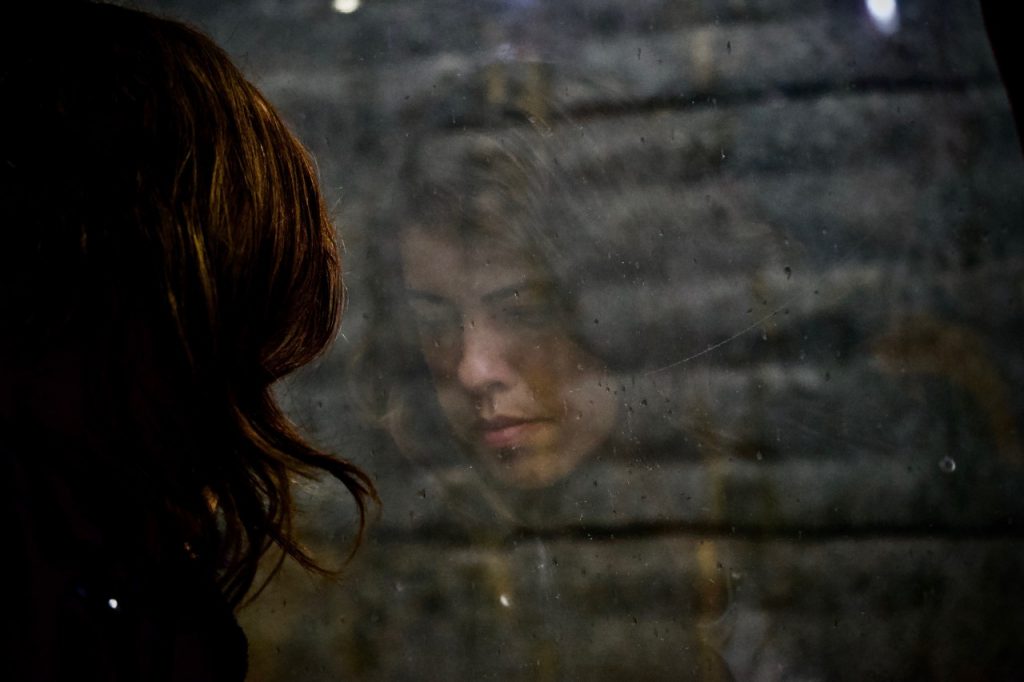It’s widely held that when dealing with abortion, rape and incest are special cases. Most people will say abortion is the closest thing to a solution in such cases. Even those who disagree — who point out that an innocent child shouldn’t perish for the sins of his father — often share the popular assumption that abortion would be something of a relief to the woman who’s been victimized. In short, the notion is that the interests of the woman and her child are in conflict: What’s good for one is bad for the other.
But is that true? Some Harvard students thought otherwise, and they decided to put forth their dissenting view in a very public way.
In October 2004, members of Harvard Right to Life (HRL) put up about 400 posters in student housing entitled “Women Deserve Better,” one of which featured a woman identified as “Candice.” “I was raped and therefore ‘justified’ in my abortion, but it didn’t change a thing,” she said. “I suffered because I was led to believe that taking my child’s life was okay. It was not, and I have been living with that for five years.” The poster went on to give contact info for a local crisis pregnancy center, reminding readers that “there is help for unplanned pregnancies.”
It was a message many people didn’t want to hear. Within a few days, half the posters had been torn down or defaced. A student quoted in the Harvard Crimson admitted tearing up one poster, complaining it was “coercive” and imposed on her “personal space.” (“That’s a moral judgment I don’t want to look at when I go into my room every day.”) And though school officials at first spoke up for HRL’s free-speech rights, after a few weeks of emotionally charged controversy — with some students claiming the posters committed “revictimization” by dredging up rape victims’ memories — HRL ended up agreeing to submit future materials on the topic to Harvard’s Office of Sexual Assault Prevention and Response.
There’s no question that discussing a topic like rape calls for great sensitivity. But it’s doubtful that the reason for the intense backlash was that victims would be traumatized by the very mention of rape: There’s no controversy when sexual-assault centers feature victims in their ads. The real reason for the anger was probably expressed by a Harvard Crimson student columnist, who fumed: “What bothers me is that HRL has taken a feminist idea, that women deserve better, and co-opted it to deny women rights.” There you have it: If you’re not for “abortion rights,” you don’t care about women. It’s yet another case of the left claiming a sort of moral monopoly.
It’s a shame, if not a surprise, that the issue HRL tried to raise largely got lost in the process. Their point, after all, was that abortion is not only morally wrong, but it also harms the women it’s allegedly going to help. It’s a devil’s bargain: It promises relief from a seemingly unbearable burden in return for sin, but it ends up bringing burdens that are truly unbearable.
And that’s true even in cases of rape — a point testified to by researchers who’ve spent time talking with the women who’ve experienced it.
“The welfare of a mother and her child are never at odds, even in sexual assault cases,” says Dr. David Reardon, a full-time researcher into the impact of abortion on women, in a valuable article, “Rape, Incest and Abortion: Searching Beyond the Myths.” “Both the mother and child are helped by preserving life, not by perpetuating violence.”
From his own research and the work of others, Reardon reports some results most people would find surprising:
For example, it is commonly assumed that rape victims who become pregnant would naturally want abortions. But in the only major study of pregnant rape victims ever done prior to this book,The Post-Abortion Review 2(1) Winter 1993. Copyright 1993 Elliot Institute. Dr. Sandra Mahkorn found that 75 to 85 percent did not have abortions.… This one finding alone should cause people to pause and reflect on the presumption that abortion is wanted or even best for sexual assault victims. Mahkorn, “Pregnancy and Sexual Assault,” The Psychological Aspects of Abortion, eds. Mall & Watts, (Washington, D.C., University Publications of America, 1979) 55-69.
Several reasons were given for not aborting. Many women who become pregnant through sexual assault do not believe in abortion, believing it would be a further act of violence perpetrated against their bodies and their children. Further, many believe that their children’s lives may have some intrinsic meaning or purpose which they do not yet understand. This child was brought into their lives by a horrible, repulsive act. But perhaps God, or fate, will use the child for some greater purpose. Good can come from evil.
The woman may also sense, at least at a subconscious level, that if she can get through the pregnancy she will have conquered the rape. By giving birth, she can reclaim some of her lost self-esteem. Giving birth, especially when conception was not desired, is a totally selfless act, a generous act, a display of courage, strength, and honor. It is proof that she is better than the rapist. While he was selfish, she can be generous. While he destroyed, she can nurture.
By contrast, Reardon notes, women who go through with abortion find that abortion itself is the real revictimization.
Many women have described their abortions as being similar to a rape (and even used the term “medical rape”)” he writes — involving “an often painful intrusion into a woman’s sexual organs by a masked stranger who is invading her body. Once she is on the operating table, she loses control over her body. Even if she protests and asks the abortionist to stop, chances are she will be either ignored or told that it’s too late to stop the abortion.
Moreover, “women who abort and women who are raped often describe similar feelings of depression, guilt, lowered self-esteem, violation and resentment of men. Rather than easing the psychological burdens experienced by those who have been raped, abortion added to them.”
If anything, Reardon suggests, the people most eager for abortion aren’t liable to be those who’ve been raped so often as those who haven’t been — people who are uncomfortable with the thought of dealing with the victims, who see abortion as a way to avoid or ease the process of dealing with the woman’s true needs. I suspect that in this, as in other matters, he’s quite right. Not that the woman might not end up choosing abortion anyway. But her “choice” often will be the result of pressures, subtle or otherwise, made after her friends and family have signaled (without explicitly stating it, or perhaps even consciously meaning to convey it) their strong unease with the entire situation and their desire to get it over with as quickly as possible.
That’s not real compassion, much as we might like to believe otherwise. As Reardon says, “We must recognize that children conceived through sexual assault also deserve to have their voices heard.” When tragedy happens, real compassion means being there for both the woman and her child, every step of the way. Tragedy can’t be repealed, but it can be dealt with. And indeed, as so many women have found from personal experience, good can come from evil.
If you’re interested in reading more of David Reardon’s research into the effects of abortion on women, go to www.afterabortion.org.
Copyright 2004 Matt Kaufman. All rights reserved.












